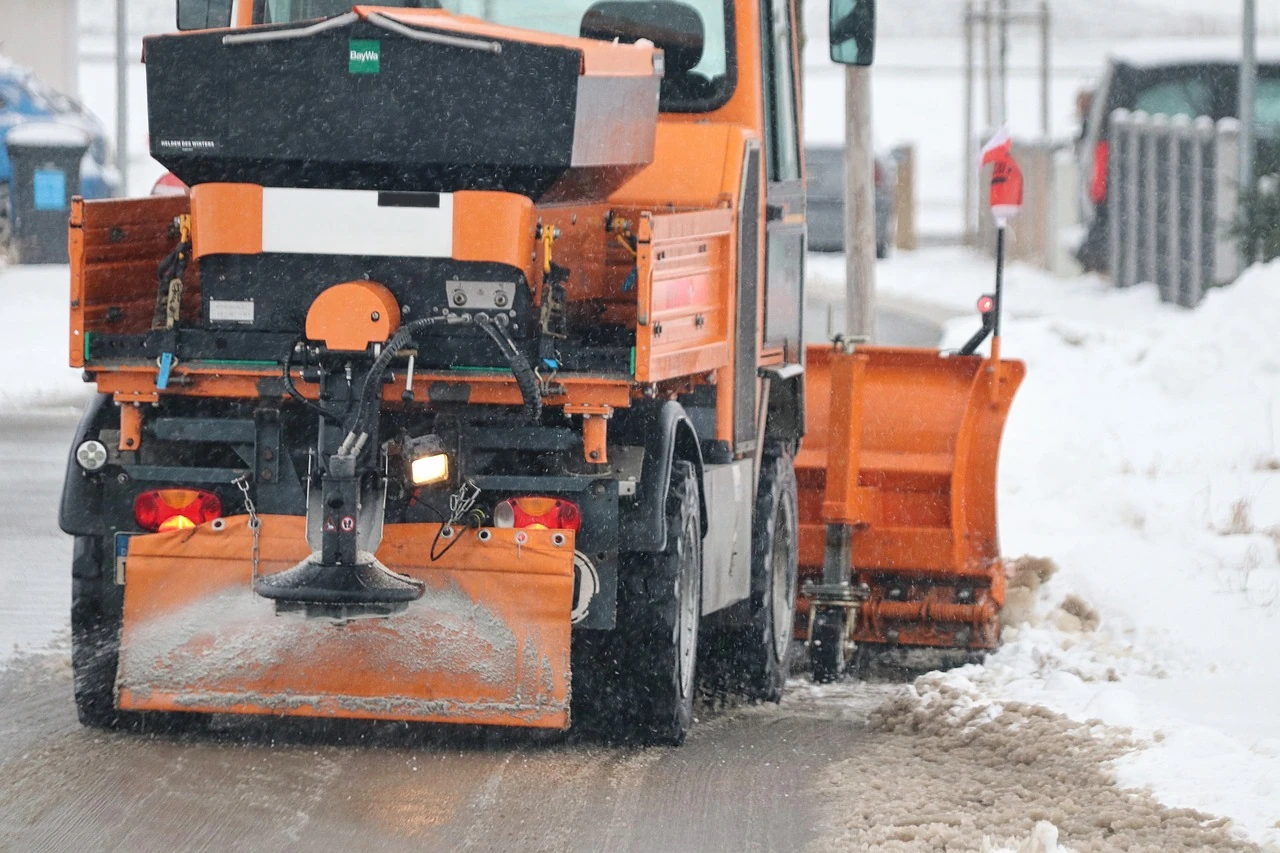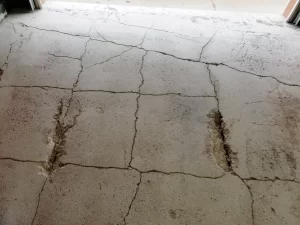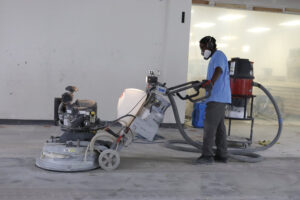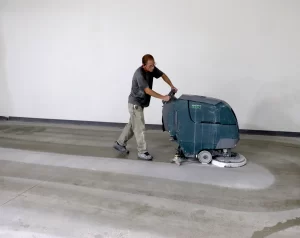Salt can potentially damage concrete through a process known as salt scaling or salt spalling. This is particularly common in cold climates where deicing salts are frequently used on roads and sidewalks to melt ice. Concrete is porous and can absorb water. When deicing salts are applied to concrete surfaces, they can dissolve in water and penetrate the concrete. The salt absorbed by the concrete can crystallize as the water evaporates. Salt crystals occupy more space than the original saltwater solution, leading to an increase in internal pressure. This pressure can cause the concrete to crack and spall.
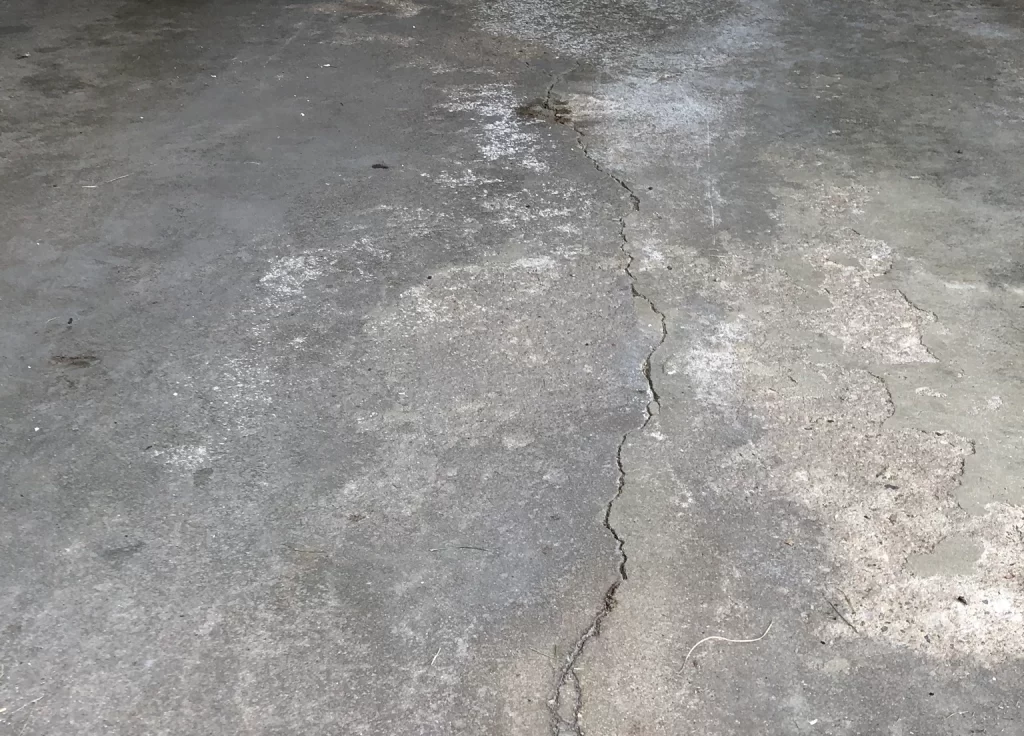
You can minimize the risk of salt damaging your concrete by taking a few easy precautionary steps.
Use Deicing Alternatives: Consider using alternative deicing materials that are less harmful to concrete, such as sand, calcium magnesium acetate, or potassium acetate.
Promptly Remove Snow and Ice: Clearing snow and ice promptly reduces the need for excessive deicing salts.
Brush Snow & Ice Off Your Vehicle: Large amounts of snow and salt can accumulate on your vehicle, melt in your garage overnight, and absorb into your concrete. Clear snow and ice off of your vehicle before parking in your garage.
Seasonal Cleaning: Deep cleaning your concrete flushes out salts and grime that can eventually lead to damage if left to absorb into the concrete over time.
Seal the Concrete: Applying a good-quality concrete sealer can help reduce the penetration of water and salts into the concrete, providing a protective barrier.
With regular maintenance and proper care, your concrete will continue to look like new for years to come!


